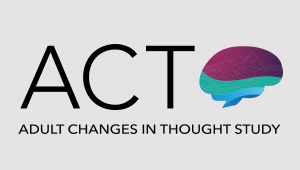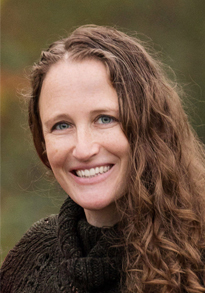Lily N. Shapiro, PhD
Biography
Lily Shapiro, PhD, MPH, is a medical anthropologist who focuses on care/caregiving, health systems navigation, and aging and dementia. She currently works on the ACT (Adult Changes in Thought) Study, designing research that investigates the lived experience of patients with dementia and their caregivers. She has particular interest in patients who do not have living close kin or otherwise have nontraditional family/caregiving arrangements, and in developing interventions that can better support them.
Her previous research focused on workplace accidents and reconstructive plastic surgery in South India. Although topically different from her current research on aging and dementia, the research methods and broader questions — about care and caregiving, how people navigate the health care system, how various systems make this easier or more difficult, and how these experiences are framed by historical, economic, social, and familial structures — are largely similar.
At KPWHRI, Lily also contributes to mixed methods studies, conducts qualitative survey response analyses, and collaborates on cancer care research, focusing on how people experience and think about their cancer. Innovative qualitative methods are among her other interests, including the use of natural language processing and other machine learning techniques to glean qualitative insights from nontraditional data sources, such as medical records.
Lily received her bachelor’s in anthropology from Amherst College, and her master’s and PhD in sociocultural anthropology from the University of Washington. She also received a master’s in public health from UW.
In her free time, Lily enjoys running, gardening, cooking, and exploring the outdoors with her family.
RESEARCH INTERESTS AND EXPERIENCE
Recent Publications
Kashyap B, Crouse B, Fields B, Aguirre A, Ali T, Hays R, Li X, Shapiro LN, Tao MH, Vaughn IA, Hanson LR How do researchers identify and recruit dementia caregivers? A scoping review 2024 Dec 17;65(2). doi: 10.1093/geront/gnae189. Epub 2024-12-18. PubMed
Rupcic S, Shapiro LN, Seaman A, Fix GM Independence with others: Lessons for anthropology from postdocs in team science 2024 Dec 2;83(4):413-425. doi: 10.1080/00187259.2024.2417197. PubMed
Figueroa Gray MS, Shapiro L, Dorsey CN, Randall S, Casperson M, Chawla N, Zebrack B, Fujii MM, Hahn EE, Keegan THM, Kirchhoff AC, Kushi LH, Nichols HB, Wernli KJ, Sauder CAM, Chubak J A Patient-Centered Conceptual Model of AYA Cancer Survivorship Care Informed by a Qualitative Interview Study 2024 Sep 4;16(17). doi: 10.3390/cancers16173073. Epub 2024-09-04. PubMed
Greenwood-Hickman MA, Shapiro LN, Chen S, Crane PK, Harrington LB, Johnson K, LaCroix AZ, Lane LG, McCurry SM, Shaw PA, Rosenberg DE Understanding resilience: Lifestyle-based behavioral predictors of mental health and well-being in community-dwelling older adults during the COVID-19 pandemic 2024 Aug 12;24(1):676. doi: 10.1186/s12877-024-05251-3. Epub 2024-08-12. PubMed
Shapiro LN, Gray MF, Freitag C, Taneja P, Kariya H, Crane PK, O'Hare AM, Vig EK, Taylor JS Expanding the ethnographic toolkit: Using medical documents to include kinless older adults living with dementia in qualitative research 2023 Jun;65:101140. doi: 10.1016/j.jaging.2023.101140. Epub 2023-05-10. PubMed
Research

Using long-term data to understand a vulnerable population
Studies offer insights into the lives of older adults with dementia who lack family.
Learn About the ACT Study

Understanding brain aging
For over 30 years, the Adult Changes in Thought (ACT) Study has been advancing our understanding of cognition, aging, and better ways to delay and prevent Alzheimer’s disease and related dementias.



